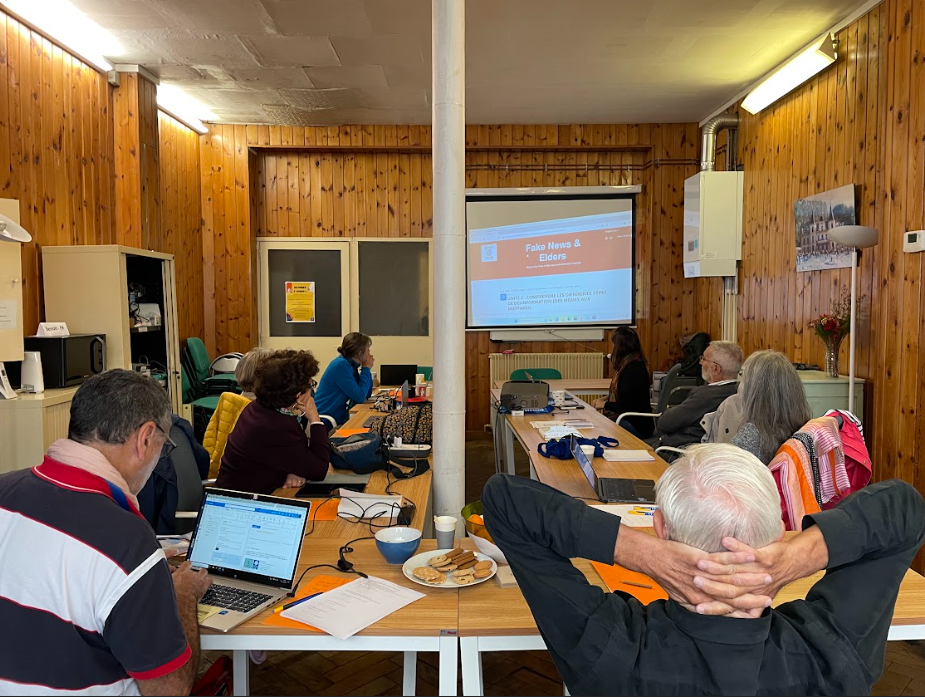PILOTING OF THE PROJECT MATERIALS
The testing phase for the PR2 Practical course aimed at seniors as target users involved a minimum of eight seniors from each partner country: the Czech Republic, France, Greece, Italy, Spain and Poland. Seniors in all countries had the opportunity to access the Fake News for Elders course platform, navigate different modules, and provide feedback. Altogether 55 seniors were involved in the practical course testing and were able to try the platform and its exercises.
The testing phase for the PR3 Methodological Guide, aimed at organisations working with seniors, involved a minimum of 2 trainers from each partner country: the Czech Republic, France, Greece, Italy, Spain and Poland. All together, 26 trainers were involved by the consortium. Organising the train-the-trainers sessions and involving trainers was generally smooth for all partners, with minor delays promptly resolved, ensuring the completion of the piloting activity within the stipulated time frame. Trainers in all countries had the opportunity to access the Fake News for Elders course platform, navigate different modules, and provide feedback through evaluation questionnaires.
And what were the results?
Seniors appreciated greatly the content of the course which was scientifically accurate, clearly explained and informative. The course was engaging and they appreciated being able to consult different themes according to their own interests and rhythms. Some themes were easier to understand than others. Knowing how to distinguish misinformation and disinformation, how fake news are created or how to recognize them was considered as really useful content. Seniors would appreciate more exercises on deciding which information is fake news or not. For those that tested it, the fact to mix quizzes and practical exercises and to learn more about fact checking methods and tools was considered a real advantage of the course. They would appreciate more information on social media security.
Trainers expressed strong positive feedback regarding the guide’s overall structure, quality, clarity, and hands-on approach. The incorporation of peer-to-peer learning techniques was hailed as innovative, with the activities being deemed both inspiring and easily applicable. The inclusion of the Best Practices was particularly lauded, as they provided practical, replicable insights, enabling trainers to share experiences and offer valuable tips that enhance their teaching activities. The satisfaction questionnaire results revealed a notably high score across Practical and Theoretical Content, as well as the Best Practice catalogue.





